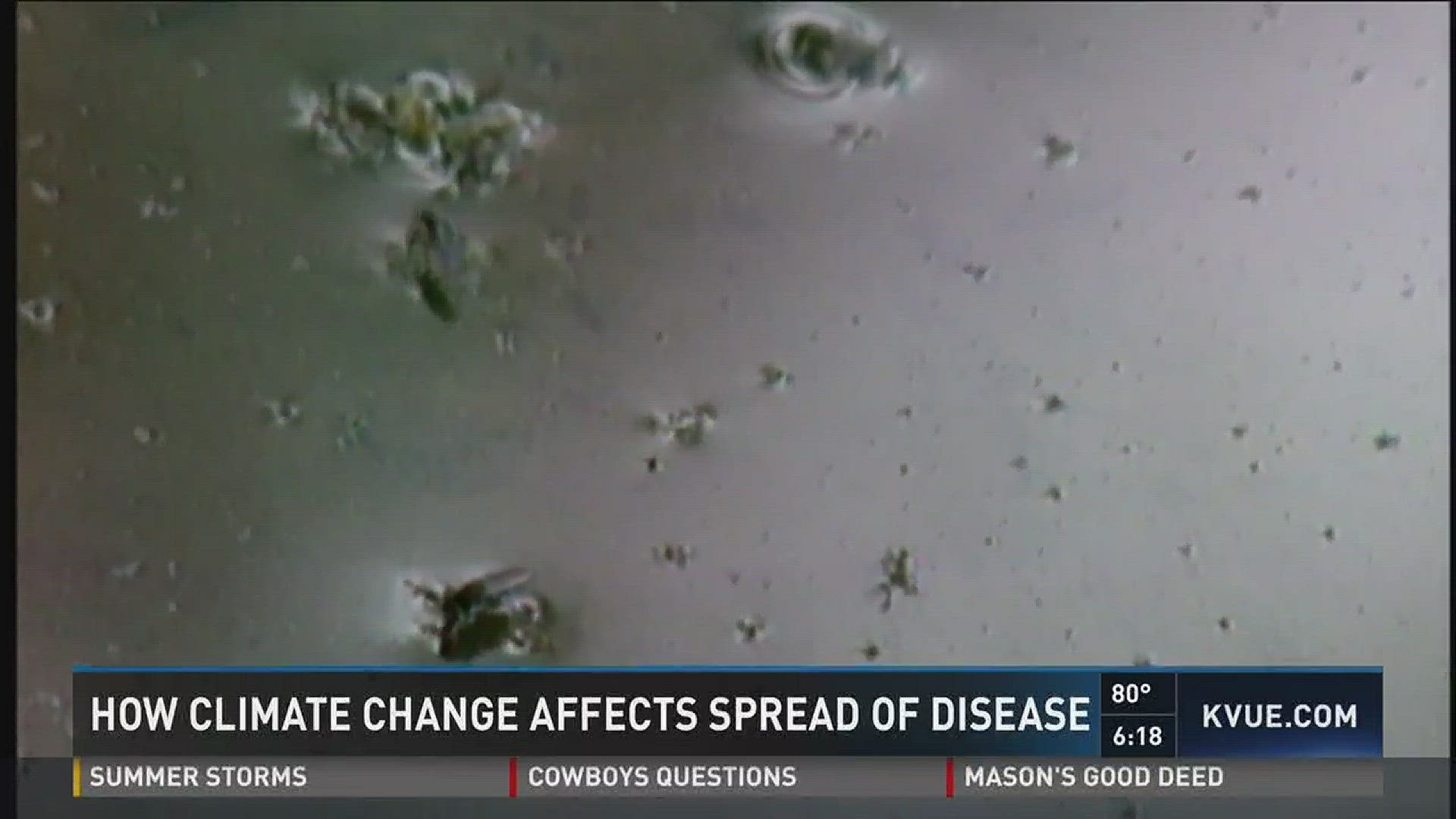From sunny skies and triple digits to heavy rain and flooding, weather in Central Texas can be untamed. But how does the unruly weather patterns affect the spreading of infectious diseases from sources like mosquitoes?
A new study from Texas State University aimed to answer that question by finding the connection between climate change and viruses like Zika and West Nile.
Dr. Yongmei Lu, a professor in the Department of Geography at Texas State, concluded the study just before Zika became a well-known world headline. However, it focuses on other infectious diseases.
Lu said changing climates, whether it be warmer temperatures or more precipitation, can have a domino effect that could increase or decrease the risk of new viruses.
"If that impacts the habitats distribution, for example for mosquitos. And also if that impacts the migratory roles for birds- and that carries viruses," said Lu.
Last month, a report by Fit Organic classified Austin as the third-most likely Zika hotspot in the US.
The Center for Disease and Control said Aedes Aegypti, the type of mosquito that is more likely to carry Zika, is believed to exist in most parts of Texas.
But Dr. Lu believes the United States is better prepared than most countries when it comes to containing these types of diseases.
"The difference mostly about society, social resources, and public health systems and outreach for communications," said Lu.
Now, scientists stress greater public education and precaution to make sure infectious diseases don't spread in Central Texas.
You can find more information on prevention here.

